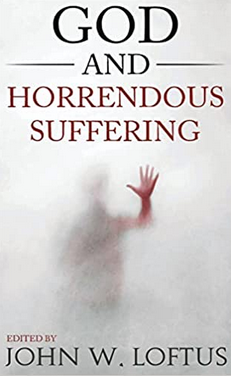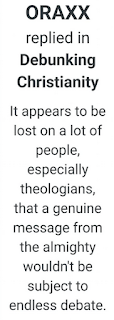As a Christian apologist, I can say that there is no intellectual objection to Christianity more daunting than the problem of horrendous suffering. In this important new book, John Loftus has gathered a diverse collection of voices that seek to build a comprehensive, multi-pronged critique of Christianity based on this most difficult problem. No Christian apologist can afford to ignore it.You can get this book from the Global Center for Religious Research. To read a nice summary introduction of the problem of horrendous suffering read this.
-- Dr. Randal Rauser, Professor of Historical Theology, Taylor Seminary, and co-author of God or Godless. Source.
It should be noted that despite his high recommendation of my work, Rauser is on a mission to discredit it, pejoratively calling me a "New Atheist" and a "Fundamentalist". He did a video about this where the only comment under it after 13 hours is, "This is stupid", by WCB. Hardy har har har!













